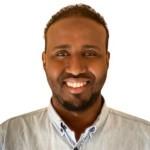-

Hear from Professor Monica Toft
Learn how Professor Monica Toft is shaping the study of global affairs and diplomacy at Fletcher.
Hear from Prof. Toft -

Explore Fletcher academics in action
Fletcher Features offers insights, innovation, stories and expertise by scholars.
Get global insights -
Get application tips right from the source
Learn tips, tricks, and behind-the-scenes insights on applying to Fletcher from our admissions counselors.
Hear from Admissions -

Research that the world is talking about
Stay up to date on the latest research, innovation, and thought leadership from our newsroom.
Stay informed -
Meet Fletcherites and their stories
Get to know our vibrant community through news stories highlighting faculty, students, and alumni.
Meet Fletcherites -

Forge your future after Fletcher
Watch to see how Fletcher prepares global thinkers for success across industries.
See the impact -

Global insights and expertise, on demand.
Need a global affairs expert for a timely and insightful take? Fletcher faculty are available for media inquiries.
Get in Touch
An Interview with Abdifatah Mohamud (MAHA '21)
Executive Director, Lifeline Gedo (LLG)
Kenyan-born Abdifatah Mohamood grew up in Somalia and has worked in humanitarian contexts in a range of operational positions for almost a decade. Here, he shares a bit about the challenges of humanitarian work. Learn more about Mohamud here.
Please tell us about your work in Somalia.
Currently I am Executive Director for a local NGO called Lifeline Gedo (LLG), which operates in Southern Somalia. LLG is a humanitarian, non-profit and non-governmental organization dedicated to responding to humanitarian emergences through provision of lifesaving support mechanisms in partnership with national and international role players.
Working as an aid worker in Somalia is one of the most difficult jobs. You need to deal with various challenges that include working in an insecure environment where you can lose your life or get injured, dealing with crises that are beyond your capacity, playing a neutral role in an atmosphere where conflicting parties are fighting and each side forces you to be on their side. But the rewarding aspect of this work is when you see a mother or small child struggling and hungry because of displacement and conflict, and then you see them smiling after you changed their life at every level.
How did your experience at Fletcher prepare you for this role?
Before I entered Fletcher’s MAHA degree program, I had field experience but very limited knowledge in terms of international ethics for humanitarian policies and procedures. This program prepared me to understand the humanitarian arena that has been growing and changing quickly, especially for those who work in volatile environments. The growing number of vulnerable communities, as well as humanitarian workers, continue to put pressure on donor funding even as budgets continue to burst the traditional limits. This means that only professionals who adapt quickly will be able to stay up-to date with the system.
After completing the MAHA degree, I was offered an executive position, which I believe would not have been possible without the knowledge and network I gained at Fletcher.
How do you recognize World Humanitarian Day?
My team and I are planning to recognize the upcoming World Humanitarian Day by visiting the family of our late workmate Adam, who was killed by Al-Shabab in 2019 while he was on a field mission. Adam left four kids and an unemployed wife. We want to show them our solidarity and make a donation from our salary.
No one feels more pain than a dedicated aid worker, who’s left their comfort zone to assist people in need of humanitarian assistance -- which they could not deliver due to lack of resources or security challenges.


